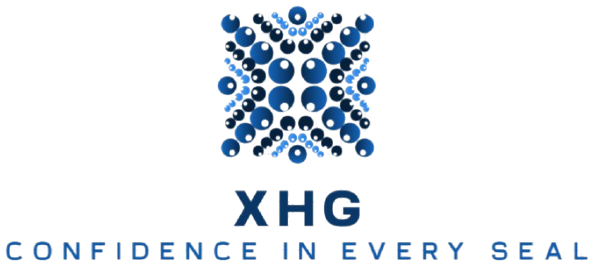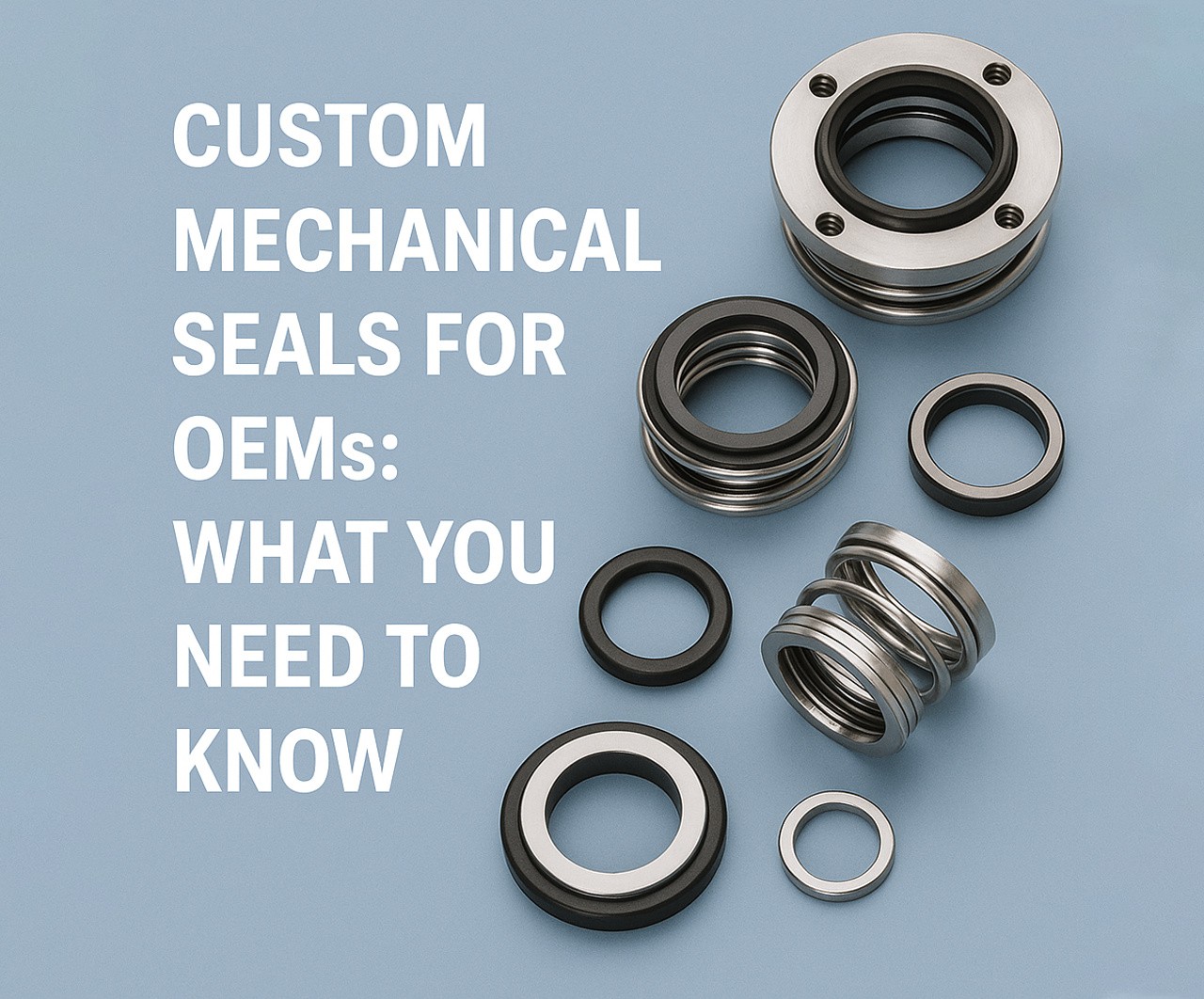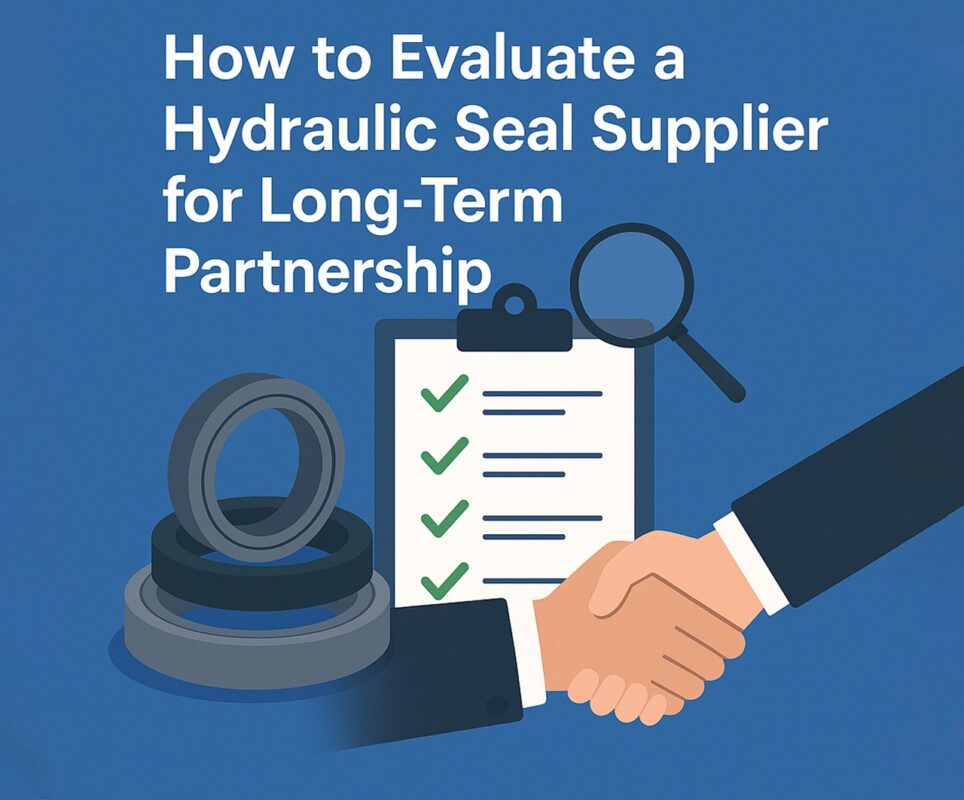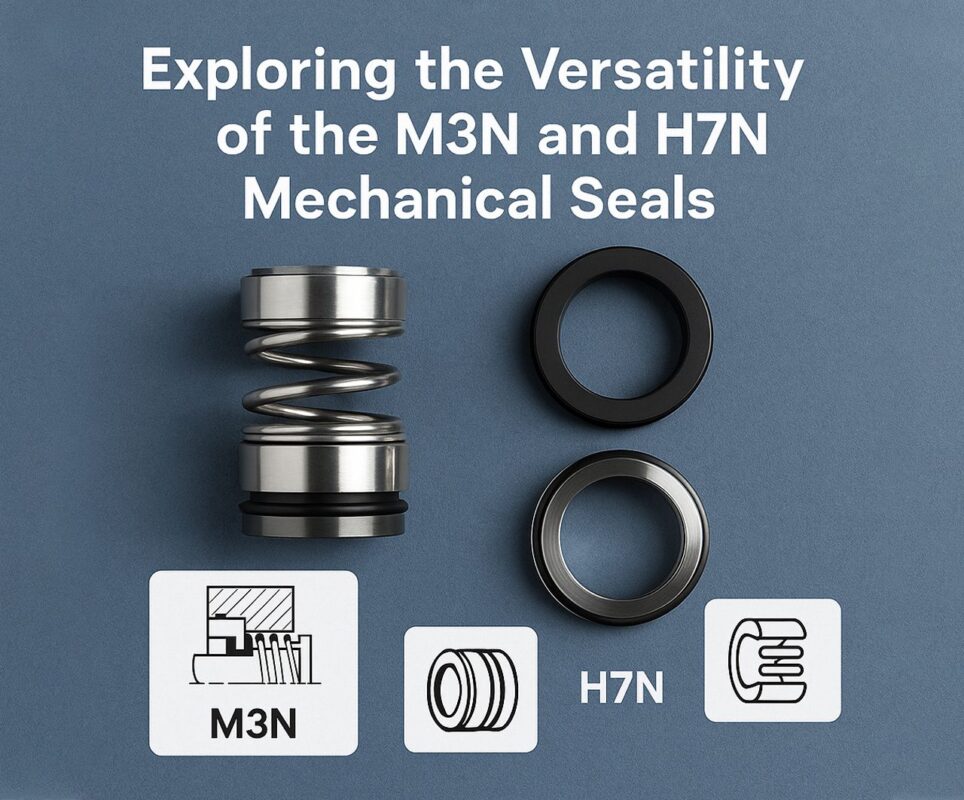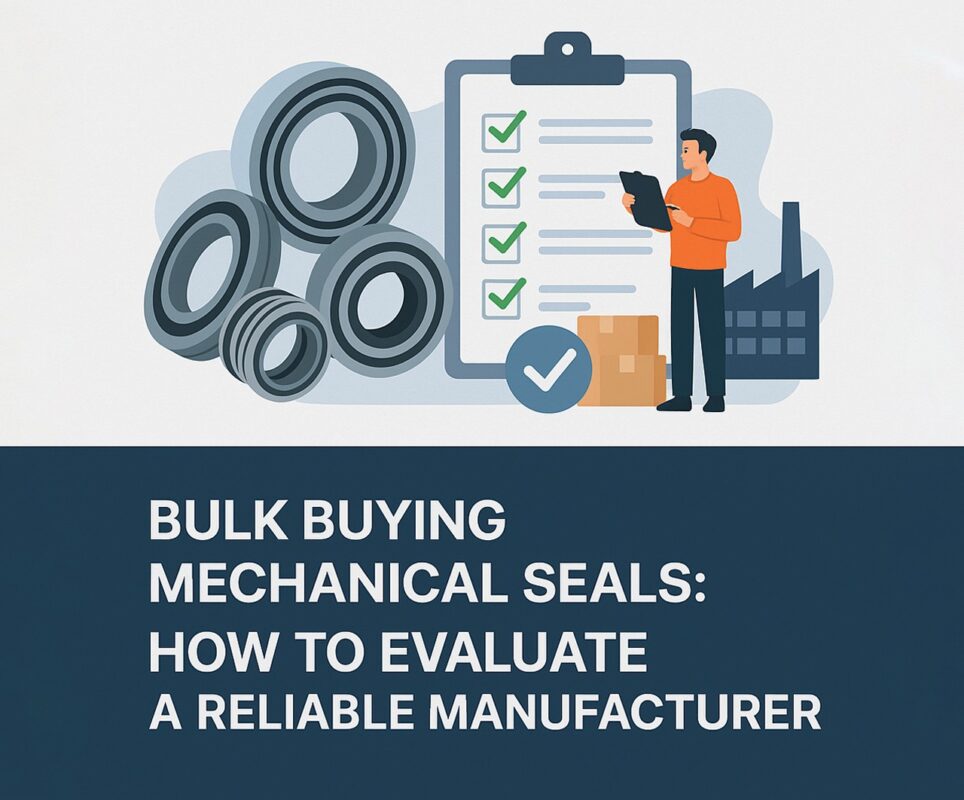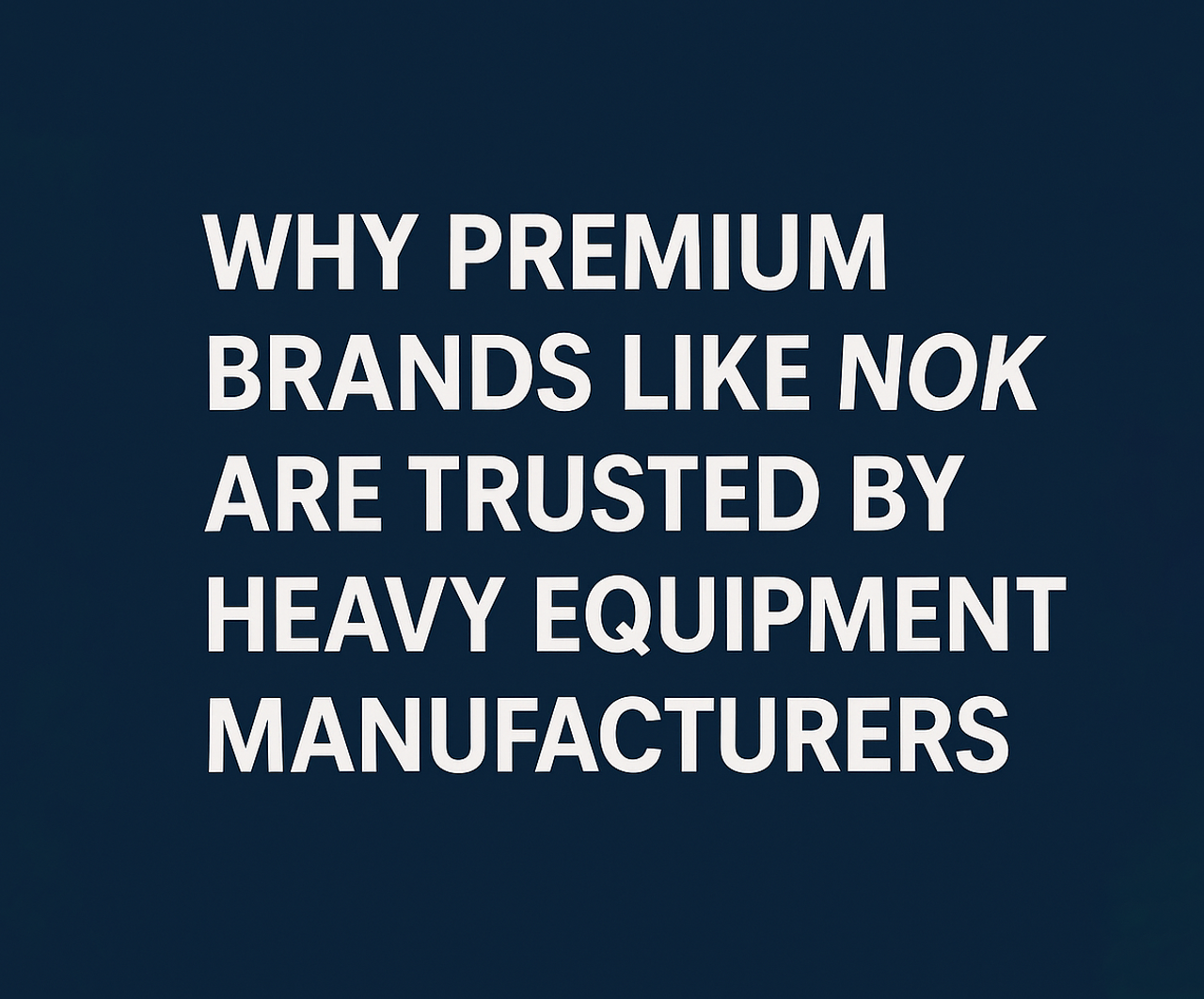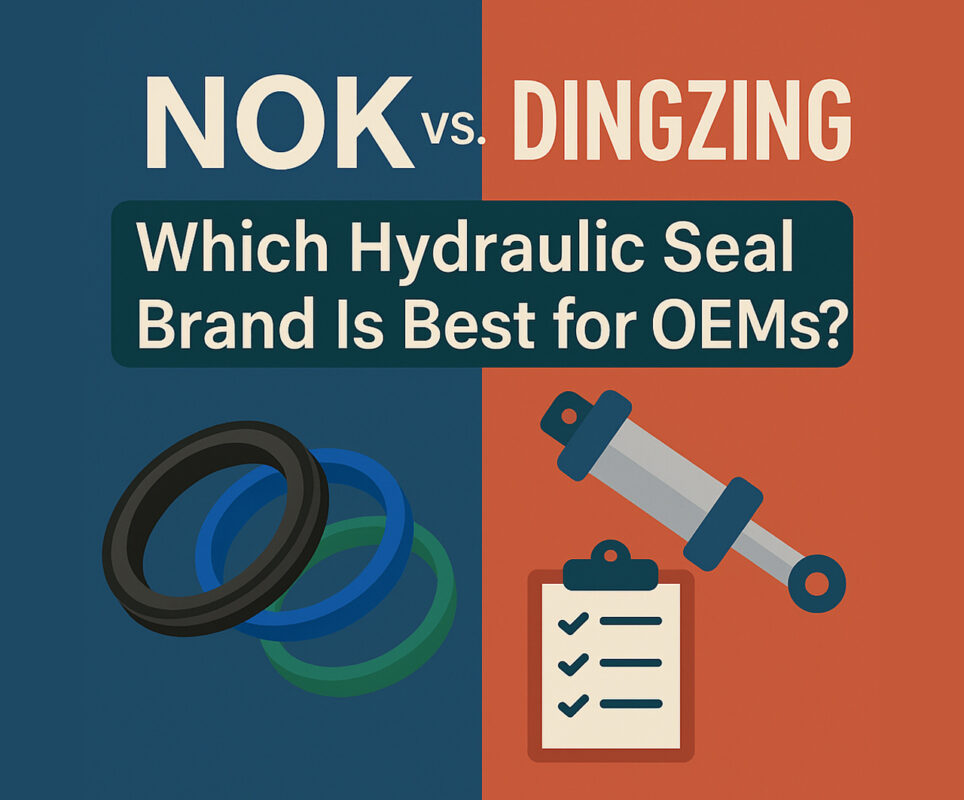When designing high-performance systems, off-the-shelf parts don’t always cut it—especially when it comes to sealing technology. That’s why OEM engineers are increasingly turning to custom mechanical seals to match exacting performance standards, improve reliability, and meet specific environmental conditions. Whether you’re engineering a mechanical seal for water pump applications or building a complex mechanical shaft seal for high-speed rotating equipment, customization can unlock efficiency, safety, and longevity that generic seals simply can’t provide.
In this article, we’ll break down why custom mechanical seals are becoming the go-to solution for OEMs, what goes into designing one, and how to ensure you choose the right sealing partner. Know more..
Why OEMs Are Moving Toward Custom Mechanical Seals
As machines become more specialized, so too must their components. Generic seals might function in ideal conditions, but they often fall short when exposed to:
- Higher-than-average pressures
- Abrasive or corrosive media
- Irregular shaft diameters or speeds
- Tight envelope dimensions
- Unique operating cycles
For these reasons, a custom mechanical seal offers significant advantages in tailored system performance—especially for industries like HVAC, oil & gas, food processing, water treatment, and chemical manufacturing.
Off-the-Shelf vs. Custom: What’s the Real Difference?
An off-the-shelf mechanical shaft seal might cost less up front, but over time it can result in:
- Increased maintenance
- Frequent downtime
- Reduced component life
- Lower system efficiency
On the other hand, custom mechanical seals are engineered to meet the exact tolerances, speeds, pressures, and materials that your application demands. They often integrate seamlessly into your design and reduce the need for adapters or workarounds—especially important in compact systems or next-gen designs.
Key Benefits of Custom Mechanical Seals
1. Perfect Fit and Function
Custom seals are tailored to match your shaft size, housing design, and system layout. This eliminates misalignment and minimizes installation errors—major causes of seal failure.
2. Material Flexibility
From PTFE to Viton, carbon to silicon carbide, you can specify materials that match your fluid type, temperature range, and pressure class.
For example, in a mechanical seal for water pump, material choice affects not only longevity but also resistance to cavitation, chlorine, and mineral buildup.
3. Application-Specific Performance
Whether you need dry-running capability, chemical resistance, or extreme temperature handling, a custom mechanical seal can be built to exceed expectations.
4. Brand Differentiation
OEMs can design proprietary sealing solutions that add value to their machinery—boosting brand reputation and customer loyalty.
Common Applications for Custom Seals
Mechanical Seal for Water Pump Systems
In municipal water systems or industrial cooling loops, custom seals can prevent leaks, reduce maintenance, and improve energy efficiency. A well-designed mechanical seal for water pump operation must endure variable loads, fluctuating temperatures, and occasional dry-run conditions.
Mechanical Shaft Seal in Agitators and Mixers
In food processing or pharmaceutical applications, hygiene, chemical resistance, and zero-leakage designs are critical. A custom mechanical seal can include FDA-compliant materials and CIP/SIP-friendly configurations.
HVAC Compressors
Compressors require dynamic, low-friction seals that work across wide temperature and pressure swings. Standard seals often fail under oil-lubricated and refrigerant-heavy systems—whereas custom mechanical seals can be designed for optimal gas sealing and long service life.
Critical Design Parameters for Custom Mechanical Seals
When developing a custom mechanical seal, OEMs and seal manufacturers collaborate to define key performance parameters:
- Shaft diameter and housing dimensions
- Rotational speed (RPM)
- Operating pressure range
- Media being sealed (liquid/gas/chemical)
- Temperature extremes (startup and running)
- Seal face material combinations
- Elastomer compatibility
Selecting the right configuration—pusher vs. non-pusher, single vs. double seal, cartridge vs. component—depends entirely on how the mechanical shaft seal will be used.
Single vs. Double Mechanical Seals for OEM Applications
Single Seal:
Often used in water pumps, these seals are simple, cost-effective, and easy to maintain. However, they may not be suitable for toxic or volatile fluids.
Double Seal:
Double seals—especially in mechanical shaft seal assemblies for chemical or high-pressure environments—offer redundancy. They provide a backup in case the primary seal fails and can handle more extreme conditions.
Many custom seal designs incorporate double face configurations to comply with environmental regulations and improve system uptime.
The Role of Seal Face Materials
Seal face materials impact friction, wear, heat generation, and chemical resistance. Popular combinations for custom mechanical seals include:
- Carbon vs. Ceramic: Great for water-based systems
- Silicon Carbide vs. Silicon Carbide: Excellent for harsh chemicals and abrasives
- Tungsten Carbide vs. Carbon: Durable for oil or slurry applications
- PTFE vs. Metal or Glass: Used in ultra-sanitary or low-torque systems
Choosing the wrong face pairing can lead to excessive wear or leakage—especially in high-speed mechanical shaft seal environments.
Selecting the Right Custom Mechanical Seal Partner
Not all seal manufacturers are created equal. Look for the following when choosing a supplier for your custom mechanical seals:
- In-house design and engineering support
- Prototyping and testing capabilities
- Rapid tooling and production scalability
- Certifications (ISO, FDA, RoHS, etc.)
- Long-term supply reliability
An experienced partner will guide you through every phase—from material selection and CAD modeling to performance testing and supply chain management.
Innovation in Custom Mechanical Seals
Today’s top custom mechanical seals go beyond standard performance. Manufacturers are integrating technologies like:
- Sensor-enabled seals for real-time monitoring
- Dry-running seals for emergency failure protection
- Split seals for easy maintenance without shaft disassembly
- Environmentally compliant seals with reduced emission leakage
Some OEMs are even embedding RFID tags into the mechanical shaft seal assembly to track lifecycle metrics and maintenance history.
Real-World Case Study: Water Pump OEM Upgrade
A pump manufacturer producing large-scale mechanical seal for water pump systems faced recurring seal failures in municipal treatment plants. Off-the-shelf seals couldn’t handle the combination of sand-laden water and intermittent cavitation.
By switching to a custom mechanical seal with silicon carbide faces, upgraded elastomers, and a special debris-blocking geometry, the OEM reduced failure rates by 60% and extended seal life by over 18 months per unit—resulting in substantial savings for both them and their customers.
How to Start a Custom Seal Project
- Define application goals: What problems are you solving—leaks, lifespan, performance?
- Gather technical specs: Shaft size, speed, media, pressure, temperature.
- Consult a seal engineer: Most custom mechanical seals suppliers offer application consulting.
- Prototype and test: Validate in real-world conditions before full-scale production.
- Evaluate cost vs. lifetime value: Consider reduced maintenance, energy savings, and performance benefits.
Final Thoughts
Standard components can only take your system so far. If your equipment is unique, your seals should be too. Investing in custom mechanical seals gives OEMs the ability to fine-tune performance, improve safety, and reduce long-term operational costs. Whether you’re developing a next-gen mechanical seal for water pump system or optimizing a mechanical shaft seal for critical equipment, customization isn’t just a luxury—it’s becoming the standard.
Choose a trusted partner, take the time to analyze your system’s exact needs, and design a sealing solution built for the long haul.
